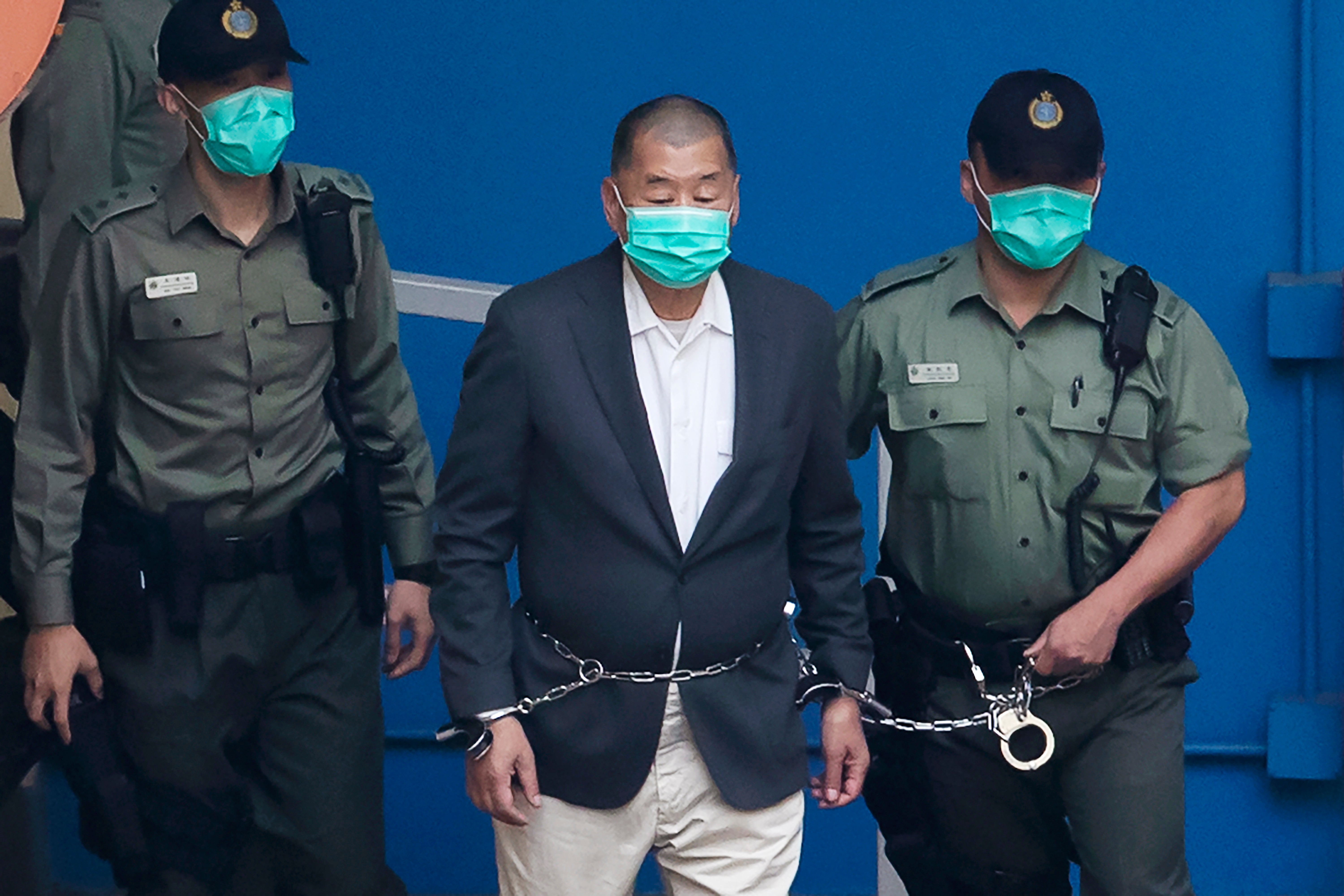Hong Kong media tycoon Jimmy Lai granted bail
Hong Kong media tycoon Jimmy Lai has been granted bail, nearly three weeks after he was remanded in custody over fraud and national security-related charges

Your support helps us to tell the story
From reproductive rights to climate change to Big Tech, The Independent is on the ground when the story is developing. Whether it's investigating the financials of Elon Musk's pro-Trump PAC or producing our latest documentary, 'The A Word', which shines a light on the American women fighting for reproductive rights, we know how important it is to parse out the facts from the messaging.
At such a critical moment in US history, we need reporters on the ground. Your donation allows us to keep sending journalists to speak to both sides of the story.
The Independent is trusted by Americans across the entire political spectrum. And unlike many other quality news outlets, we choose not to lock Americans out of our reporting and analysis with paywalls. We believe quality journalism should be available to everyone, paid for by those who can afford it.
Your support makes all the difference.Hong Kong media tycoon Jimmy Lai was granted bail on Wednesday, nearly three weeks after he was remanded in custody over fraud and national security-related charges.
Lai, an outspoken advocate for democracy in Hong Kong, was charged with fraud on Dec. 3 for allegedly violating the lease terms for office space for his media company, Next Digital. He was later charged again on Dec. 12 under the national security law, on suspicion of colluding with foreign forces and endangering national security.
Lai appeared in court Wednesday and was granted bail by the High Court. He had been kept behind bars since Dec. 3.
He is among a recent string of pro-democracy activists and supporters arrested by Hong Kong police in recent months, prompting concerns that Hong Kong is cracking down on dissent following Beijing’s imposition of a national security law on the semi-autonomous Chinese territory in June.
Beijing imposed the national security law in response to protests in Hong Kong that began in June 2019 over a proposed extradition law and expanded to include demands for greater democracy in the former British colony.
The legislation outlaws secession, subversion, terrorism and collusion with foreign forces to intervene in Hong Kong’s internal affairs.
In certain cases, those charged under the national security law could also face trial in mainland China, where the legal system is highly opaque. Serious offenders of the law could face life imprisonment.
Earlier this month, Hong Kong sentenced prominent pro-democracy activists Joshua Wong and Agnes Chow to jail for their roles in an anti-government protest outside police headquarters last year.